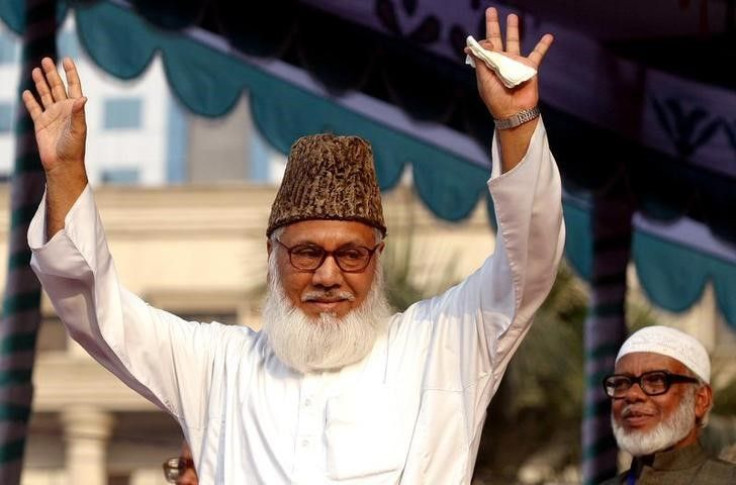Bangladesh Court Sentences Top Islamist Party Leader To Death For War Crimes

A Bangladesh war crimes court handed down a death sentence to the leader of the country’s largest Islamist party for his involvement in riots during the nation’s independence war against Pakistan in 1971, according to media reports.
Motiur Rahman Nizami, 71, leader of the Jamaat-e-Islami party, was reportedly found guilty of murder, rape and looting during the nine-month long war with Pakistan. The court in Dhaka sentenced Nizami to “hang by the neck until his death” for orchestrating the killings of several Bengali nationalists, including several professors, writers and doctors, during the conflict.
“Considering the gravity of the crimes, the tribunal punished him with the death sentence,” state prosecutor Mohammad Ali said, according to media reports.
Predominantly Muslim Bangladesh was a part of Pakistan since the subcontinent was partitioned following the departure of the British in 1947. However, it was closer physically and culturally to the Indian state of West Bengal, leading to the 1971 war, which led to the formation of the country.
Hundreds of thousands of people, most of them civilians, were reportedly killed during months-long clashes between pro-independence groups and pro-Pakistan Razakar militias during the war in 1971. According to some estimates, the war rendered more than 10 million people homeless, many of whom were forced to take shelter in refugee camps across the border in India.
Nizami, who was the commander of the Al-Badr militia, which helped the Pakistani army identify and kill pro-independence activists in Bangladesh during the war, was reportedly facing charges of personally carrying out the killing, and ordering the deaths, of nearly 600 Bangladeshis.
Several members of the Bangladesh Jamaat-e-Islami party, an offshoot of Jamaat-e-Islami Pakistan, have already been convicted of war crimes by special tribunals set up by the Bangladesh government, according to media reports.
Following the verdict, security was reportedly beefed up in Dhaka and other major cities across the country as previous judgments by the tribunal have sparked off violent clashes between the police and Jamaat-e-Islami supporters.
© Copyright IBTimes 2024. All rights reserved.












